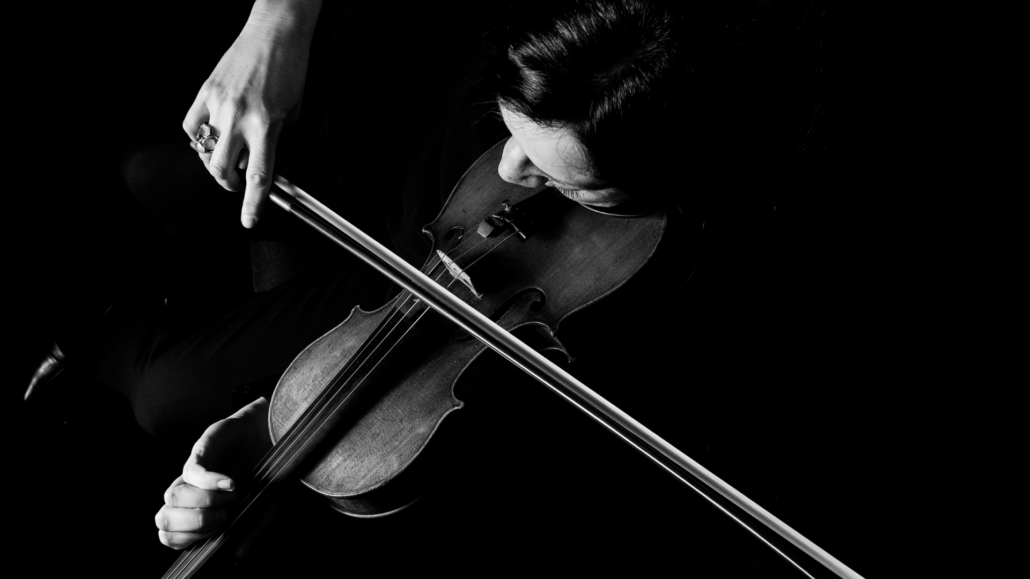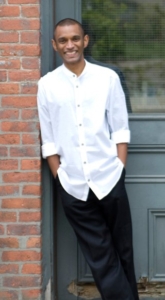APRIL 21, 2024
RIMSKY-KORSAKOV – SCHEHERAZADE
According to composer, conductor, and piano virtuoso Dinuk Wijeratne, one of his preoccupations is trying to broker a meeting between East and West—and this socio-aesthetic concern will emerge in many subtle ways as he leads the Victoria Symphony’s Scheherazade program.
It is, for instance, vividly present in Wijeratne’s decision to conduct Nikolai Rimsky-Korsakov’s epic suite Scheherazade, which the Russian composer wrote in 1888, at the very height of Europe’s “Orientalist” fascination with Asian arts and culture. Rimsky-Korsakov’s piece shares its epoch with the purple prose of French novelist Pierre Loti’s Madame Chrysanthème and Fantôme d’Orient, the immense influence of Japanese printmakers such as Utagawa Hiroshige on the early Impressionists, and just barely predates the 1889 arrival of Indonesian gamelan music in Paris, which would make such an impact on composers such as Maurice Ravel and Claude Debussy. But there’s a darker side to this Orientalist preoccupation, too. While Rimsky-Korsakov was borrowing themes for his symphonic dream from the anonymous collection of Middle Eastern folk tales known as The One Thousand and One Nights, his Tsar, Alexander III, was pursuing a deadly policy of imperial conquest in the very countries that had produced those stories, most notably the region then known as Persia.
Why, then, would an artist who was born in Sri Lanka—which itself had been passed from Portuguese to Dutch to British control before becoming a republic in 1972—want to engage with this relic of an imperialist past? “Well,” Wijeratne says, “I usually joke that it’s the kind of piece that I wish I could have written, but I didn’t.”
There’s more to it than that, of course. Besides Wijeratne’s obvious love for Rimsky-Korsakov’s stirring melodies and lush orchestration, this Russian fantasy prefigures some of his own compositional concerns.
“It’s kind of an internal-identity thing,” he explains. “I mean, Scheherazade is one of my favourite pieces in my repertoire, and it makes for an interesting pairing if one’s own music is trying to, you know, meld cultures.
“Now I do like pointing out to the audience that Scheherazade is not really an East-meets-West piece,” he continues, noting that Rimsky-Korsakov’s musical language is very much in keeping with that of other Russian composers of his era. “It was trying to be, in the sense that it clearly comes from this sort of empire-building/Orientalist perspective, and there is an Orientalist otherness that is being told through music. And then there’s the story about the sultan and how he was prolonging the life of the heroine, and that brings in this whole misogynistic thing. But I think that also has to be told from the podium. I talk about how we were telling stories in those days, and I think it’s good for people to know that.
“But, anyway, long story short: the link is that I do find, even as a person of colour, these Orientalist perspectives fascinating. People wanted to tell stories that way and then, that aside, from a purely sonic point of view you have a stunning piece. It’s like box-office gold! It’s one of those rare pieces that orchestras love to play because they get lots of solos, and that audiences love to hear it because it’s got everything. It just kind of wins on all levels.”
Other Orientalist visions are referenced in Wijeratne’s own work. The verses that inspired the first of his Two Pop Songs on Antique Poems, “A letter from the After-life”, are presumed to have been penned by the 11th-century Persian polymath Omar Khayyám, but Wijeratne encountered them in an 1869 English translation by Edward FitzGerald. FitzGerald was obviously seeking a deeper connection with Asian philosophy than Rimsky-Korsakov’s harem fantasy. In his Rubáiyát translation one gets a strong sense of a staid English mind being blown by the beauty of Persian poetry, and by the notion that Christian duality might not be the only lens through which the world might be seen.
Wijeratne meets FitzGerald in this contested ground by weaving North Indian tabla rhythms into his string parts, and by quoting a European classic of morbid Romanticism, Franz Schubert’s String Quartet No. 14 in D minor, more popularly known as Death and the Maiden.
The adaptation embedded in “I will not let thee go”, the second part of Two Pop Songs, is simpler: change the archaic “thee” of the Victorian poet Robert Bridges’ “I Will Not Let Thee Go” to a more contemporary-sounding “you”. The ensuing resemblance to any number of modern pop lyrics is striking, and that ties in to another of Wijeratne’s obsessions: dance.
“The influence of dance is always strong, I would say,” he comments, linking the loops and grooves of modern dance pop to the cyclical forms that underpin much South Asian music. “I hear this in Scheherazade, too. It’s just highly rhythmic music, and dance-influenced. And then the Borodin [Alexander Borodin’s Polovtsian Dances] came to mind, because it just fits in nicely.”
Returning to Edward FitzGerald and Omar Khayyám, Wijeratne sees in both poet and translator “someone discovering oneself in the vastness of the universe.” The same could be said of his own path through music, from first encountering the classical composers as a child to collaborating with cellist Yo-Yo Ma’s intercultural Silk Road Project to finding his own voice as a piano improviser. It has been an exciting journey so far, and will be worth continuing to watch.
Notes by Alex Varty




 Dinuk Wijeratne, conductor
Dinuk Wijeratne, conductor